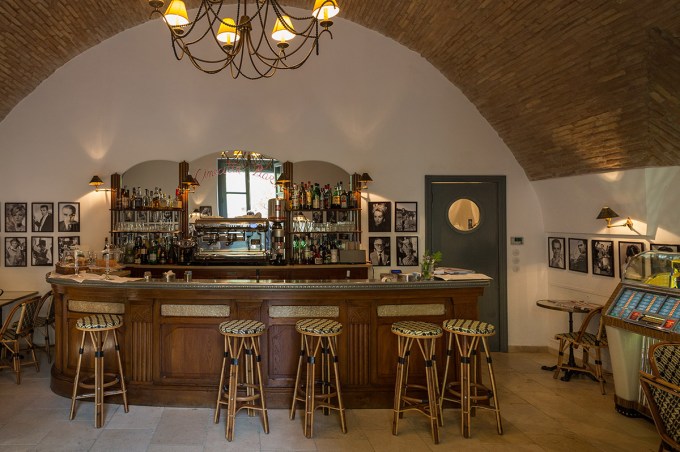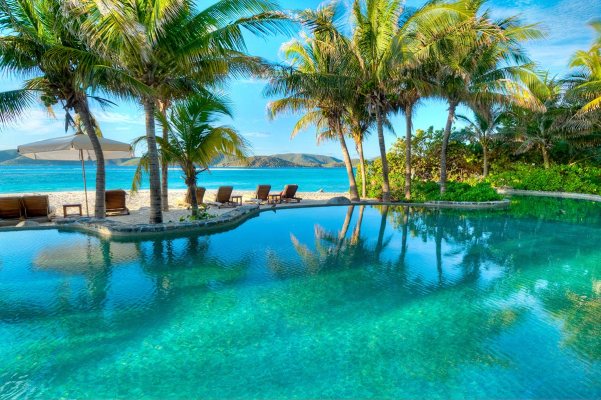As Airbnb continues to add more features to its online accommodation rental marketplace to meet demands both from regulators and its growing audience of hosts and guests, a startup in the same space but focusing exclusively on high-end properties has raised funding. Luxury Retreats, a Montreal-based marketplace for people to list and find super fancy homes for short-term rentals, has raised $11 million in a Series B round, led by another Canada-based firm, iNovia Capital.
The company is not publicly disclosing its valuation in this round, but founder and CEO Joe Poulin did tell me a few other details: Luxury Retreats — where typical prices are between $1,500-$2,500/night for a 3-5 bedroom home — has already been profitable “for years,” (a detail we don’t know definitively for its much larger counterpart Airbnb), and it wasn’t out looking for funding but decided to take the money anyway to help expand in a couple of different areas.
One is geographical footprint — there are now 2,800 homes in 90 locations on the platform, and Luxury Retreats is now expanding in Miami, New York City, Paris and LA, which Poulin says is “growing like crazy.”
And the other is building out its concierge and home management services — respectively catering to guests and hosts.
Given that Luxury Retreats is going for a Four Seasons-style approach to sharing economy home rentals, the concierge service is a pretty central part of what it offers to those who book properties through its platform. Up to now, the company has been using a mix of local agents and a team of people working remotely — 180 all told — from Montreal to provide anything and everything that guests might need during their stay at a home. Now the idea will be to staff up with more direct employees in key markets who can offer a more personal and local touch.
Just what kinds of requests have been made through the concierge service? While people may be eating their way through the exercise of testing the limits of YC-backed Magic, Luxury Retreats has actually built its business around the very idea of “anything goes.”
Poulin says requests for specific wines, chartered boats, detailed menus and party planning are very standard, but they have also had (and fulfilled) much more, such as transporting a particular breed of duck to populate the gardens of a home when a guest was missing the waterfowl back home; and building a full synagogue on the grounds of a home for another guest.
The properties themselves come from the rich and unknown, as well as the rich and famous, with Richard Branson’s Necker Island and Francis Ford Coppola’s evocative palazzo in Puglia, Italy, among those listed on the site. (There are other ridiculously high profile names both on the hosting and guest side that are not publicly disclosed. This really is Airbnb for the one percent.)

Apart from pointing to the perennial success of tech services that have figured out and completely nailed their target market, the funding and growth of Luxury Retreats underscores something else: just how normalised the concept of “the sharing economy” has become.
Airbnb was borne out of the idea of giving the average person a way of supplementing his/her income by renting out a room or home when they’re not there; or a way for a traveller to stay somewhere more unique and possibly cheaper than a hotel. Luxury Retreats is a sign of how this concept has trickled into other parts of the travel industry — specifically the one that services a much more rarified and higher-paying clientele. It’s not unlike the Uber-effect on other modes of transport like yachts and private jets, but also transporting your kids to their after school activities.
“The sharing economy has exploded in popularity and we see a big opportunity in delivering predictability and consistency to our guests,” Poulin says.
High-end home rentals for wealthy people is an area that others are increasingly looking to target, too. Competitor OneFineStay recently raised a $40 million round, which included a strategic investment from Hyatt Hotels. And HomeAway meanwhile now has its own sub-brand, the similarly named Luxury Rentals. Poulin says that his Luxury Retreats remains different from these because of its attention to vetting sites — or “curation” as he calls it — and generally making the walls of its sharing sandbox just that much higher.
“You can’t just load a property and go,” he says. “Our peel off is that we have a little more control. It’s not fully peer to peer because we certify all properties. There is a need for driving business on the high end. Luxury is not sold, it’s delivered.”
Interestingly, Luxury Retreat’s cultivation of high end homes and occasionally eccentric human needs doesn’t impact margins as you think it would.
“We take a 20 percent commission and in some instances a bit more,” he explains, which he says works out to be not much more than the aggregate commission Airbnb and others makes when a property is listed there. Airbnb charges five percent or so to the homeowner, and then a further six – 12 percent on the guest side, and that’s before cleaning fees. “With us it’s completely turnkey, with Airbnb it’s a lot of work,” he adds.
Poulin says the company has no plans to try to expand its model to less expensive tiers of houses or paying guests.
Prior to this round, Luxury Retreats had raised $5 million, also from iNovia.
